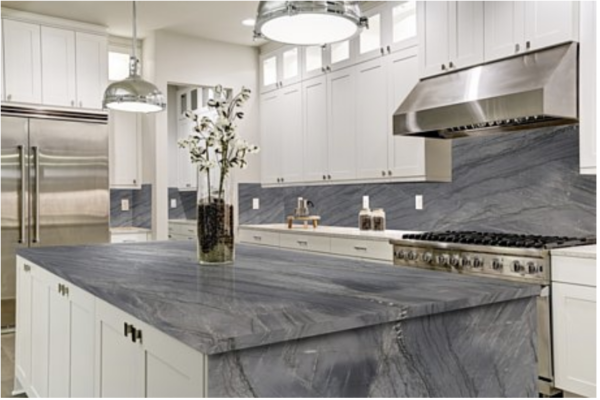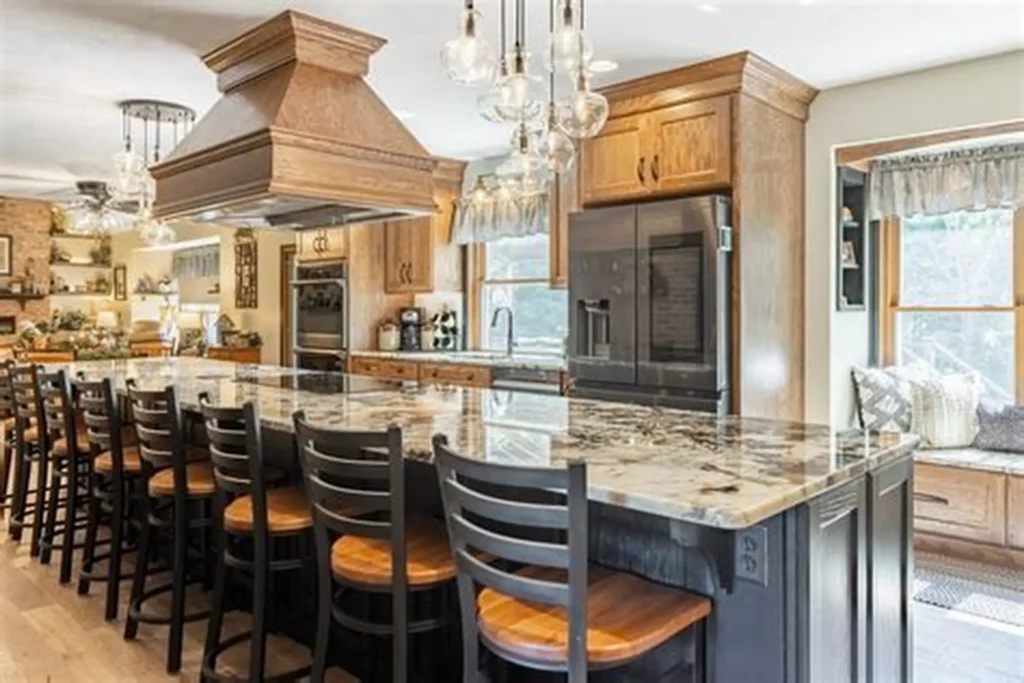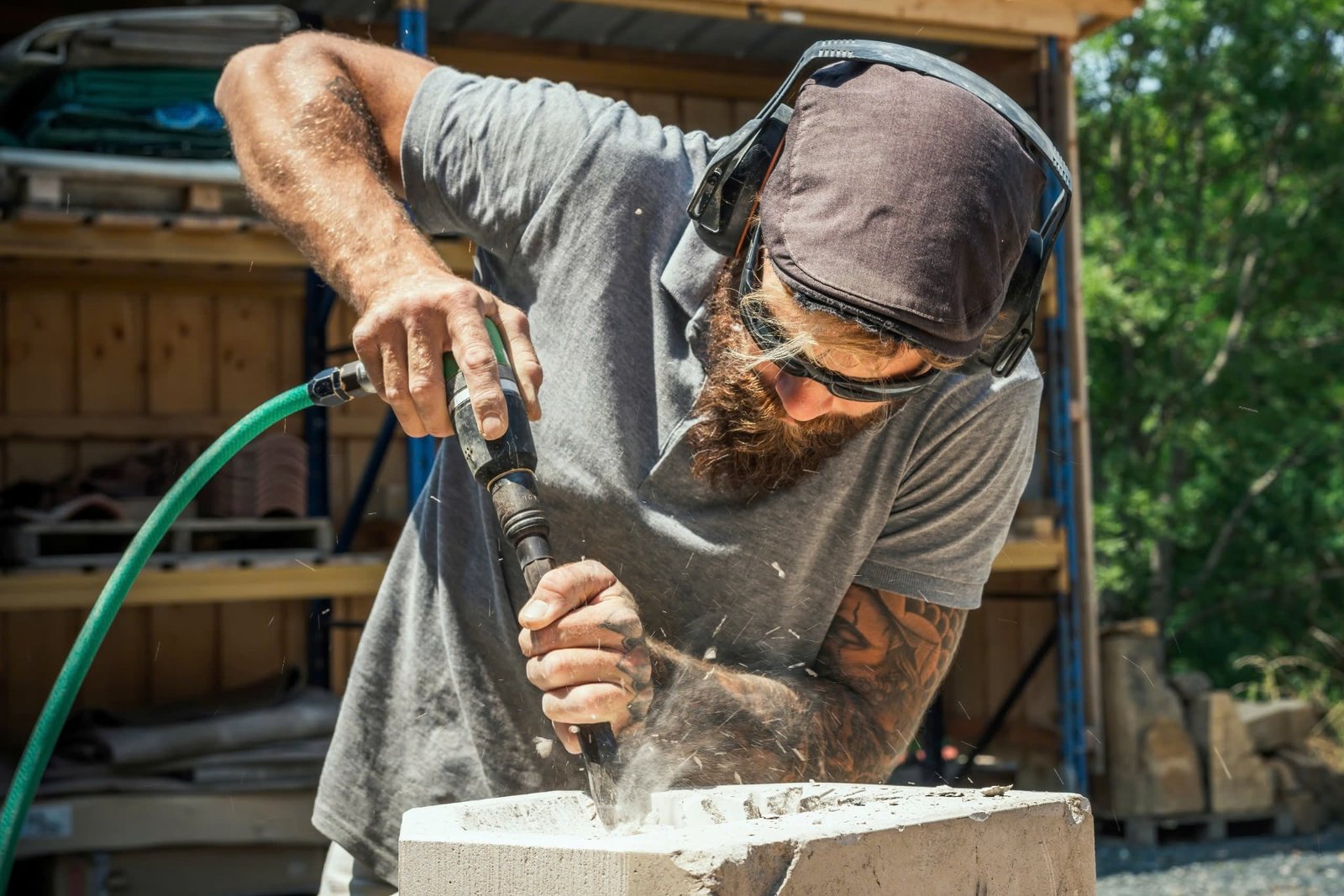
Granite countertops and quartz countertops are two of the most popular choices for modern kitchens and bathrooms.
Granite countertops and quartz countertops are two of the most popular choices for modern kitchens and bathrooms. Both offer exceptional style, durability, and resale value, but they differ in material composition, maintenance requirements, and overall cost. Whether you’re planning a remodel with granite kitchen countertops, upgrading your granite bathroom countertops, or deciding between granite vs quartz countertops for a new build, understanding these differences will help you make the right choice.

Understanding the Basics: Granite vs Quartz Countertops
- Granite Countertops: A natural stone quarried from the earth, cut into granite slabs for countertops, and polished to your chosen finish. No two pieces are identical, making each slab unique.
- Quartz Countertops: An engineered stone made from natural quartz crystals mixed with resins and pigments. Offers more uniformity in color and pattern.
Related Resources:

Durability Comparison
Granite Countertops Durability
Granite is one of the hardest natural stones used for interiors, making it highly scratch- and heat-resistant. It is ideal for high-use spaces like kitchens and granite countertops for outdoor kitchens.
Pros:
- Resistant to heat from pots and pans
- Less prone to chipping than softer stones
- Long lifespan with proper care
Cons:
- Can crack if subjected to extreme impact
- Requires periodic sealing to maintain stain resistance
Quartz Countertops Durability
Quartz is also extremely hard, but because it’s engineered, it’s non-porous and more resistant to stains without sealing. However, it’s slightly less heat resistant than granite.
Pros:
- Extremely durable and non-porous
- Resistant to scratches and stains
- No sealing required
Cons:
- Can discolor under prolonged UV exposure (less ideal for outdoor kitchens)
- Not as heat-resistant as granite
Maintenance Requirements
Granite Countertops Maintenance
Granite requires sealing—typically once a year—to maintain its resistance to stains and bacteria. Regular cleaning should be done with a pH-neutral cleaner to preserve the finish.
Related Reads:
Quartz Countertops Maintenance
Quartz’s non-porous nature means it does not need sealing. Maintenance is as simple as wiping the surface with mild soap and water.
Maintenance Tip: Avoid harsh chemicals and abrasive pads that could damage the resin surface.
Cost Comparison: Granite vs Quartz
The cost to install granite countertops varies widely based on stone rarity, thickness, and complexity of installation. Basic granite options can be more affordable than high-end quartz, but rare granite slabs may exceed quartz prices.
| Material | Avg. Cost (Installed) | Long-Term Maintenance Cost |
|---|---|---|
| Granite Countertops | $50–$200 per sq. ft. | Moderate (sealing required) |
| Quartz Countertops | $55–$155 per sq. ft. | Low (no sealing) |
Explore More:
- What’s a Cheaper Alternative to Granite Countertops?
- What’s a Cheaper Alternative to Granite Countertops?
Style and Design Options
- Granite: Available in natural variations like black granite countertops, white granite countertops, brown granite countertops, and blue pearl granite countertops. Each slab offers a one-of-a-kind appearance.
- Quartz: Offers a consistent look, with patterns that can mimic granite, marble, or even concrete.
For both options, finishes include polished granite countertops for high gloss and honed granite countertops for a matte look.
Which Should You Choose?
Choose Granite If:
- You love natural, unique patterns
- You need maximum heat resistance
- You’re okay with annual sealing
Choose Quartz If:
- You want low-maintenance countertops
- You prefer consistent color and pattern
- You don’t plan to use them in outdoor kitchens
Professional Fabrication and Installation
Whether you opt for granite or quartz, professional installation ensures a perfect fit and finish. A reliable stone fabricator can help you select the right material, edge profile, and finish for your project. For moving and positioning large slabs safely, specialized tools like the glass lifter make the process more efficient and secure.
Final Verdict
Both granite and quartz countertops are excellent choices for kitchens and bathrooms, each with their own set of strengths. Granite countertops shine in their heat resistance, natural beauty, and uniqueness, while quartz excels in low maintenance, stain resistance, and consistent design.
Your choice will depend on your priorities—be it the timeless elegance of natural stone or the practical ease of engineered stone.

